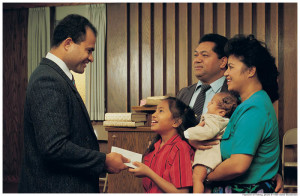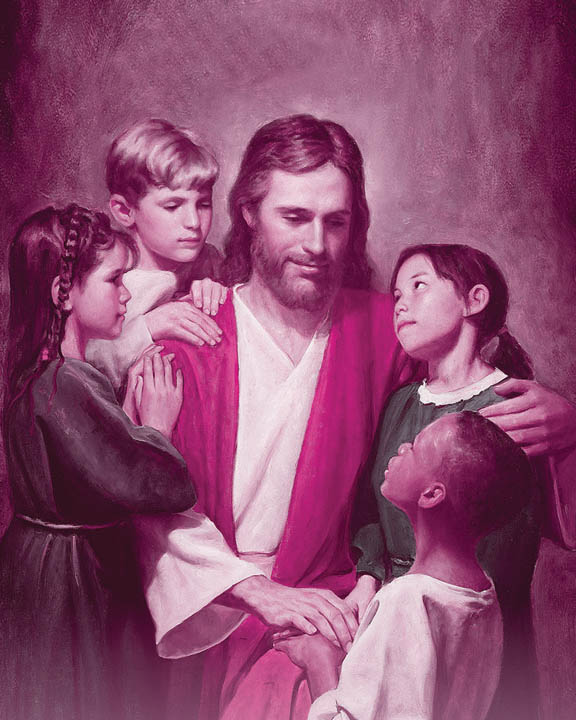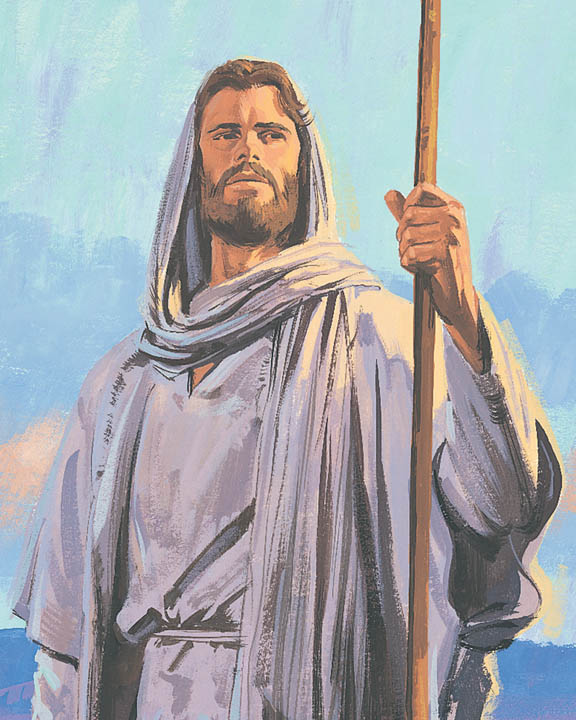![Earth Day: Celebrating God’s Creation]()
by Keith L. Brown | Apr 22, 2013 | About Mormons
Each year, 22 April is set aside as the day for the observance of Earth Day, a day on which people around the world through different events and venues demonstarte their support for environmental protection. Earth Day is celebrated in more than 192 countries, and is coordinated globally by the Earth Day Network. Individuals view the significance of this day, and celebrate the day in various ways. For members of The Church of Jesus Christ of Latter-day Saints (inadvertently referred to by the media and others as the Mormon Church), Earth day becomes another day to celebrate God’s magnificent creation.
 History of Earth Day
History of Earth Day
The following information was obtained from Wikipedia.
The date of 22 April was officially designated as International Mother Earth Day by a consensus resolution in 2009 which was adopted by the United Nations.
The name and concept of Earth Day, however, is credited to John McConnell who pioneered the idea in 1969 at a UNESCO Conference in San Francisco, California. He proposed that the 21 March 1970, the first day of Spring in the northern hemisphere that year, to be designated as Earth Day. A month later another Earth Day, first held on 22 April 1970, was founded as an environmental teach-in by United States Senator Gaylord Nelson. Although the United States was the focus of this 22 April Earth Day, Denis Hayes, the original national coordinator in 1970, took it to an entirely different level. In 1990 the observance of Earth became an international event in 141 nations. (more…)

by Gale | Apr 16, 2013 | About Mormons
Many people think of sacrifice as an old-fashioned thing. In the Bible it seems to be something confined to the Old Testament, done away with in Christ’s “new law.” When the ancient Israelites failed to qualify to “enter into God’s rest,” He gave them a “schoolmaster law,” which was a law of outward ordinances. Rituals, and practices, and patterns of religious behavior were all symbolic of the Christ, a preparation for the higher law to come. When Jesus was offered up, He became the great and last sacrifice by the shedding of blood, and asked us to come unto Him with a broken heart and a contrite spirit, and to place our sins upon the altar. As we progress, we are also able to place our will upon the altar, and to surrender our lives to His service.
What then of sacrifice? Sacrifice means giving up something for a higher good. When one considers the two levels of priesthood, the Aaronic or lower priesthood, and the Melchizedek, or higher priesthood, sacrifice couples with repentance as Aaronic principles. They are foundational—the floor of the eternal, precious edifice that is the gospel of Jesus Christ. Upon them, we build on a sure foundation, adding the Gift of the Holy Ghost, our desires to reconcile with God, and our surrender to His will.
In Mormonism, which is the Church of Jesus Christ restored in it’s fullness in these last days before His Second Coming, Latter-day Saints exercise the principle of sacrifice in many ways.
Tithing
 Tithing is by definition one tenth of one’s increase, and has always been a law of the gospel. A person who pays tithing in the proper spirit realizes that all he or she has comes from God, and that all He requests is one tenth in return as an offering. By living this law, followers of the Savior reap the blessings He has promised to the obedient. In fact, He blesses us so much, that we are again in His debt. The paying of tithing is ennobling. Tithe payers increase in humility, sensitivity to the Spirit, faith, and patience, even as they are blessed line upon line with the doctrines of the kingdom, and even with worldly sustenance. This is not a prosperity gospel, but a sustenance promise. Those full-tithe-payers who have faced financial emergencies have been rescued time after time by miraculous means. (more…)
Tithing is by definition one tenth of one’s increase, and has always been a law of the gospel. A person who pays tithing in the proper spirit realizes that all he or she has comes from God, and that all He requests is one tenth in return as an offering. By living this law, followers of the Savior reap the blessings He has promised to the obedient. In fact, He blesses us so much, that we are again in His debt. The paying of tithing is ennobling. Tithe payers increase in humility, sensitivity to the Spirit, faith, and patience, even as they are blessed line upon line with the doctrines of the kingdom, and even with worldly sustenance. This is not a prosperity gospel, but a sustenance promise. Those full-tithe-payers who have faced financial emergencies have been rescued time after time by miraculous means. (more…)

by byustudent | Apr 11, 2013 | About Mormons
As school comes to an end, I really feel like the messages that I continue to learn through my study of the Book of Mormon become stronger and stronger. I can tell that the Lord wants me to prepare for what life has ahead of me.
 This week, I was pondering the question, “Why does the Book of Mormon contain so much war and fighting?” Specifically, I wanted to know how do these stories of battle apply to us. It was this thinking that brought me to an answer found in Ether 8. In verse 26, Moroni (whom after studying so much I have found to be a great writer and very influential on me) states,”… am commanded to write these things that evil may be done away, and that the time may come that Satan may have no power upon the hearts of the children of men…” Once again, Moroni makes no doubt in his words. He has been commanded by the Lord to tell us about these wars for our own recognition of evil. The Lord wants us to be able to know the difference between right and wrong and this is one way in which he can reinforce it. (more…)
This week, I was pondering the question, “Why does the Book of Mormon contain so much war and fighting?” Specifically, I wanted to know how do these stories of battle apply to us. It was this thinking that brought me to an answer found in Ether 8. In verse 26, Moroni (whom after studying so much I have found to be a great writer and very influential on me) states,”… am commanded to write these things that evil may be done away, and that the time may come that Satan may have no power upon the hearts of the children of men…” Once again, Moroni makes no doubt in his words. He has been commanded by the Lord to tell us about these wars for our own recognition of evil. The Lord wants us to be able to know the difference between right and wrong and this is one way in which he can reinforce it. (more…)

by byustudent | Apr 9, 2013 | Mormon Reflections
BYU Students Share Letters & Reflections on Scripture
BYU (Brigham Young University) is operated by The Church of Jesus Christ of Latter-day Saints, often mistakenly called the “Mormon Church.” As part of their undergraduate coursework, BYU students take multiple semesters of spiritually uplifting, stimulating religion classes.
In this series (see below), students enrolled in scripture study classes have shared their thoughts, insights, and reflections on the Book of Mormon in the form of letters to someone they know. We invite you to take a look at their epiphanies and discoveries as they delve into the scriptures.
In publishing these, we fulfill their desire to speak to all of us of the relevance, power and beauty of the Book of Mormon, a second witness of Jesus Christ and complement to the Bible. The Book of Mormon includes the religious history of a group of Israelites who settled in ancient America. (The names they use are those of prophets who taught the Book of Mormon peoples to look forward to the coming of Christ—Nephi, Lehi, Alma, Helaman, and other unfamiliar names. We hope those names will become more familiar to you as you read their inspiring words and feel the relevance and divinity of their messages through these letters.) (more…)

by byustudent | Apr 9, 2013 | Mormon Reflections
BYU Students Share Letters & Reflections on Scripture
BYU (Brigham Young University) is operated by The Church of Jesus Christ of Latter-day Saints, often mistakenly called the “Mormon Church.” As part of their undergraduate coursework, BYU students take multiple semesters of spiritually uplifting, stimulating religion classes.
In this series (see below), students enrolled in scripture study classes have shared their thoughts, insights, and reflections on the Book of Mormon in the form of letters to someone they know. We invite you to take a look at their epiphanies and discoveries as they delve into the scriptures. (more…)







